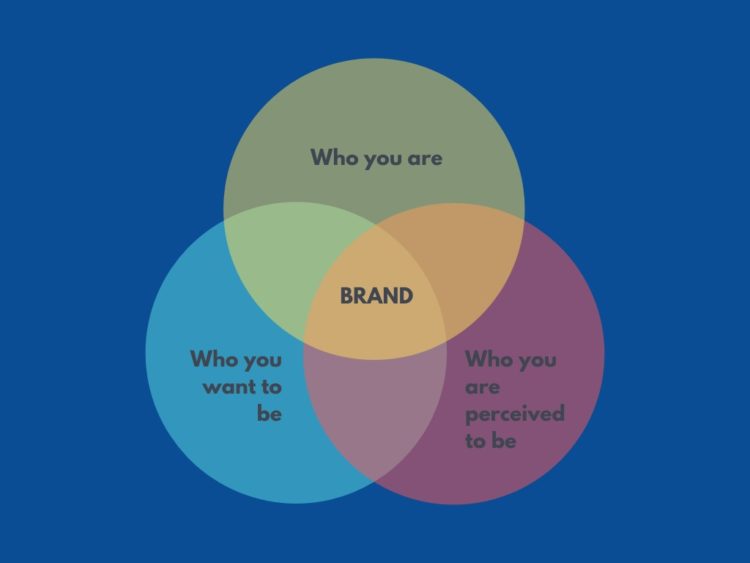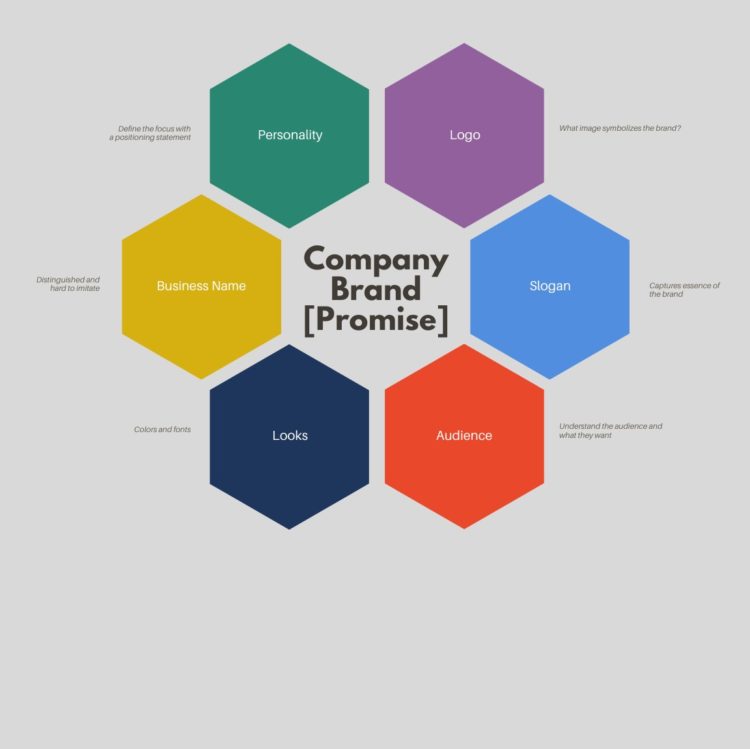Businesses are founded in lots of different ways. Some entrepreneurs set out for fortunes while others may stumble upon their great idea while trying to solve a problem. No matter the road that brings one takes, one of the most important phases in starting a business is the brand build.

Why is brand build important?
A company’s brand is a promise to its customer. It is beyond advertising copy and catchy slogans – a brand is how someone feels when they hear the name of the company or see its logo. All the elements that make up a company also contribute to the brand; everything from the corporate strategy and objective, to the company culture and the types of products and services provided all make up how an individual perceives a company. With that, it’s important to ensure that all these elements align to present and deliver the same promise.
Simon Sinek put it best in that “People don’t buy what you do. They buy why you do it.” Though his famous TED talk was about inspirational leadership, this cannot be more true for companies as well. Finding out why a business exists is important as it is the pillar for crafting the type of brand that commands a loyal following. It is even more important in a time where the consumer landscape is shifting.
The new type of customer
In the last century, customers’ relationships with businesses have evolved beyond being transactional. Where a person shops is now a component of their identity. This new, aspirational class customer, coined by Columbia Public Policy professor Elizabeth Currid-Halkett, derive their status from cultural sophistication rather than income. This is reflected in where they buy their groceries (Whole Foods and famer markets) and how they buy their coffee (bringing their own cup to the ethically sourced coffee shop). All of this done to serve as a representation of who that individual is and what their values are.
This need to manifest identity through associations is transforming how consumers shop. Young consumers especially are demanding values-driven companies and spending their income with companies that share their ethos. Given this, along with consumers’ unprecedented access to information, businesses need to leverage their brands to communicate who and what they stand for.
Brand build steps
While there are many different approaches to the brand build phase, below are seven key steps that should always be considered:
- Get to know the target audience
Identify who the target customers are and who they are currently associated with (competitors). Learn about the customers by talking to them, read through their reviews, scour relevant social media pages and accounts that the target audience follows. This should help define which subsect of customers are easiest to sell to, what they talk about, and who are the top competitors.
- Self reflection – what is the business’s personality?
The objective of self-reflection is to identify the company’s focus. A great exercise for this is writing down a positioning statement; this will narrow down the target market, the company’s value proposition, and how the company differentiate from its competitors.
- Pick a business name
This is one of the biggest commitments that a company makes as it seeps into all other branding areas, such as the logo, the marketing strategy, trademark registration, etc. In most cases, it should be distinguishable from competitors and difficult to imitate.
- Craft a slogan
Slogans are a way to capture the essence of the brand. It should be short, memorable, and highlight either the key benefit or differentiator of the company. While it is highly debated whether slogans are needed, for a new business this is primate real estate for communicating what the brand promise is.
- Decide what the brand will look like
This step is different from developing a logo as it looks at the colors and fronts that will be integrated into many aspects of the business. The brand promise that the company is communicating will dictate what are the most effective colours. For example, yellow is a colour that conveys clarity and warmth whereas blue conveys reliability and trust. Invest time in learning about colour psychology to pick a palette that matches the brand promise.
- Design a logo
Next to the business name, the logo is the other significant commitment as it is a visual representation of the business. It should be unique and identifiable. Take into consideration all the places and potential sizes that the logo may need to appear in. A common misstep is designing a logo that cannot appropriately scale or be sliced from the business name.
- Integrate the brand across all functions of the business
Everything from the tactical pieces, such as email signatures and office design to the non-tangibles, such as corporate culture and reputation, should work towards echoing the brand. This means hiring for individuals who stand for similar values, delivering products and services that resonates the brand promise, and picking partners that align with what the company stands for.

Other things to keep in mind
Once a business has built its brand, leaders must manage accordingly to ensure that it continues to deliver on its promise. A few things to keep in mind as companies begin to grow:
Continue to listen to your audience – customers evolve and do so at a very fast pace. Keep an on-going and open dialogue with customers ensures that your finger is always on the pulse. This will also allow the business to adjust branding to as needed so that who the customers perceive the business to be matches with who the business is and who they want to be.
Be consistent – brand equity is built by being consistent with the promise that is delivered to the customer. This is what differentiates Apple from other computer companies, why Coca Cola can sell at a slight premium over other cola brands, etc. Both companies have brands that are strategically crafted and consistent in its messaging. This is what allows them to command a premium over competitors.
Be Authentic – consumers are smart and can quickly pick up on brands that are trying to masquerade as something they are not. Be authentic and tell customers your why. This attract the right type of customer and drive loyalty.
Key Takeaways
- A brand is the company’s promise to its customers
- Brand build phase of starting a business is vital in defining who the brand is, who they want to be, and who they are perceived to be
- Be authentic to what the company brand is and why the company exists; customers are more concerned with why a company exists rather than what they do

